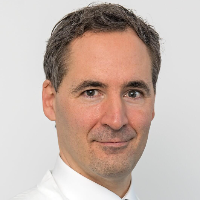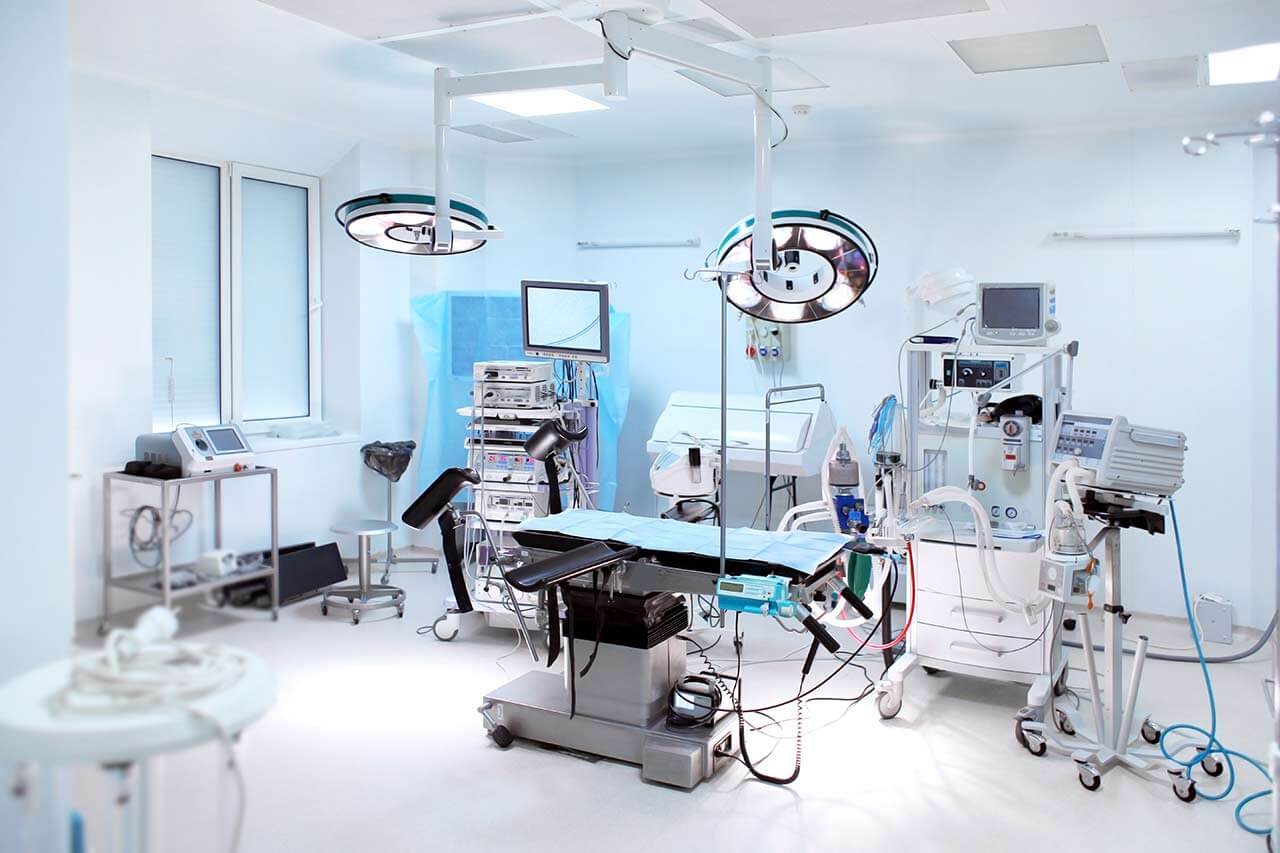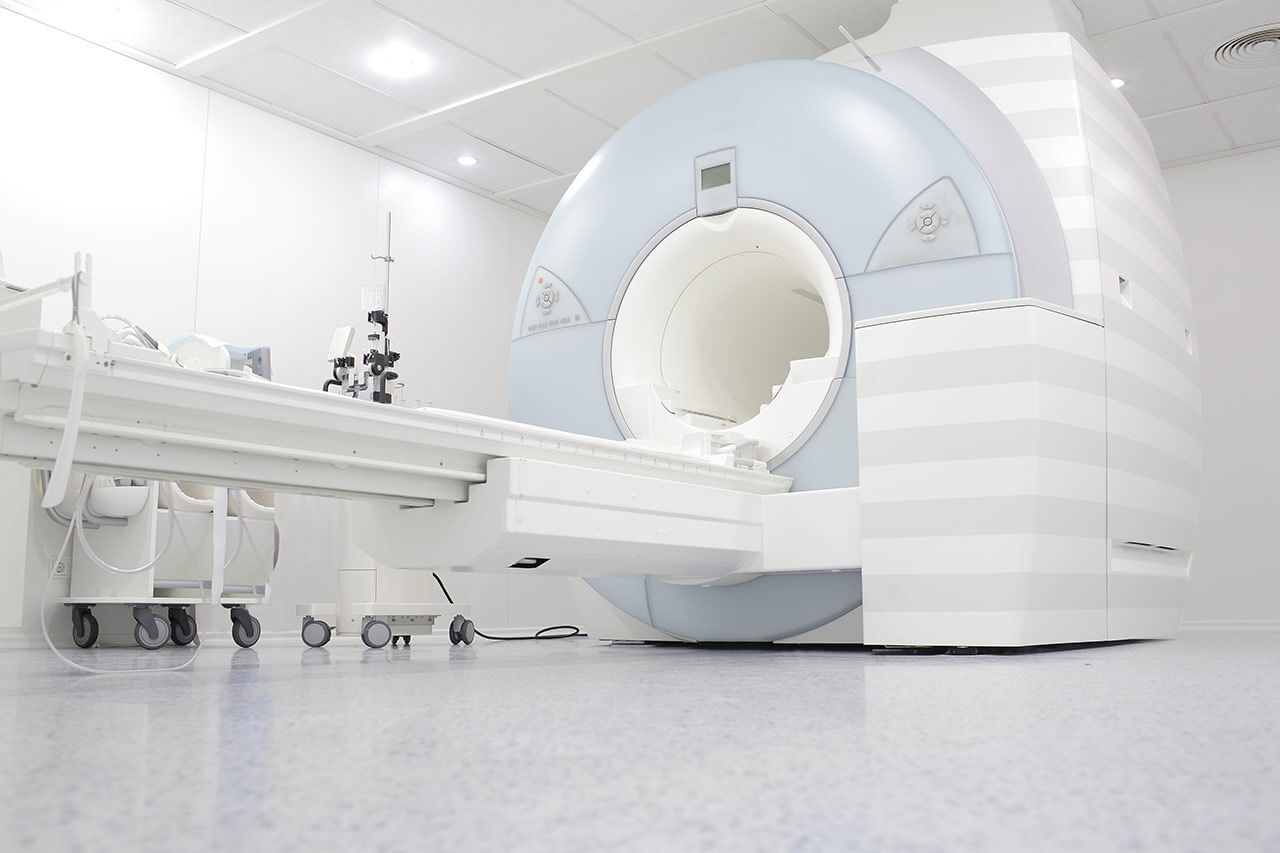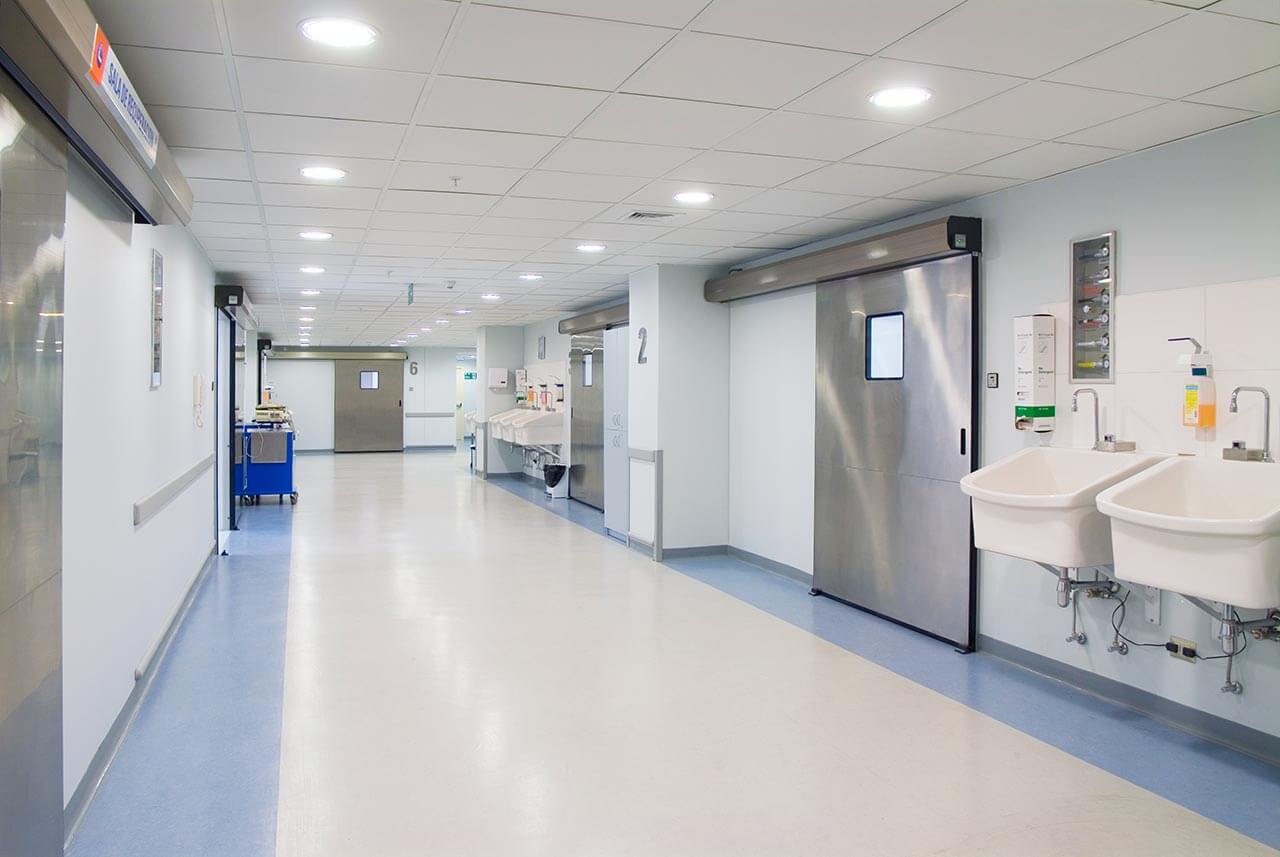
The program includes:
- Initial presentation in the clinic
- clinical history taking
- physical examination
- cardiac examination
- laboratory tests:
- complete blood count
- biochemical analysis of blood
- TSH-basal, fT3, fT4
- tumor markers
- inflammation indicators
- indicators blood coagulation
- measurement of arterial blood pressure
- ECG, echocardiography
- holter monitoring (24h)
- preoperative care
- pacemaker implantation
- symptomatic treatment
- control examinations
- cost of essential medicines and materials
- nursing services
- full hospital accommodation
- explanation of future recommendations
Required documents
- Medical records
- ECG (if available)
Service
You may also book:
 BookingHealth Price from:
BookingHealth Price from:
About the department
The Department of Cardiology and Angiology at the University Hospital Halle (Saale) provides a full range of medical services in its areas of specialization. Patient care is provided in close cooperation with the Department of Cardiothoracic Surgery, and particularly complex clinical cases are discussed at weekly interdisciplinary medical boards. The healthcare facility offers patients a modern infrastructure, state-of-the-art equipment, and highly qualified doctors with many years of experience. The department's therapeutic offerings include drug treatment of heart pathologies, sparing interventional procedures using catheter-based techniques, and hybrid interventions combining catheter-based and open surgical techniques. Depending on the complexity of the clinical case, the department provides both inpatient and outpatient treatment. The successful clinical practice of the department is recognized by numerous quality certificates, including the ClarCert DIN EN ISO 9001:2015 certificate and certificates from the German Cardiac Society (DGK) in the field of interventional cardiology and treatment of acute coronary syndrome and heart failure. The Head Physician of the department is Prof. Dr. med. Daniel Sedding.
The central place in the clinical practice of the department is given to interventional catheter-based procedures for coronary artery pathologies, aortic and mitral valve stenosis and regurgitation, patent foramen ovale, and atrial septal defect. One of the most popular catheter-based procedures is balloon angioplasty with coronary artery stenting for the treatment of atherosclerotic lesions of the coronary arteries and coronary heart disease (CHD). The purpose of balloon angioplasty is to eliminate coronary artery stenosis or occlusion and normalize the blood supply to the myocardium, followed by the placement of a drug-eluting stent or bioresorbable stent in the affected area of the coronary artery to prevent recurrent stenosis. Balloon angioplasty is performed under angiographic guidance with an approach through the femoral artery (a skin puncture of up to 2-2.5 mm in size is made) under local anesthesia without the use of a heart-lung machine. Balloon angioplasty is an alternative to coronary artery bypass grafting, which is classified as a complex surgical procedure. Hospitalization for balloon angioplasty is only 1-2 days. In addition, there is no need for long-term cardiac rehabilitation, so patients can return to their normal lifestyle almost immediately. To eliminate severe atherosclerotic lesions of the coronary arteries, the department also performs rotational ablation, a procedure in which a special rotating mini-drill (rotablator) is inserted through the patient's femoral or radial artery, which cleans the coronary vessel of calcified plaque from the inside, restoring its patency. If a patient is diagnosed with chronic coronary occlusion, the department's cardiologists offer treatment using the coronary artery recanalization (reopening) procedure. This is a sparing catheter-based procedure, the effectiveness of which is comparable to the results of surgery.
The department's team of cardiologists also excels in catheter-based procedures for aortic and mitral valve stenosis and regurgitation. Transcatheter aortic valve implantation (TAVI) and the interventional MitraClip device placement procedure are successfully performed here. The TAVI procedure is indicated for aortic valve stenosis and involves replacing the aortic valve under X-ray guidance through a puncture in the femoral artery without stopping the heart. Aortic stenosis is a partial narrowing of the lumen of the aortic valve that makes it difficult for blood to flow from the left ventricle to the aorta, which supplies blood to the body. The main symptoms of aortic stenosis are severe shortness of breath, chest pain during intense physical activity, and increased fatigue. If left untreated, aortic stenosis can lead to sudden cardiac death. Transcatheter aortic valve implantation is the optimal treatment option for patients with severe comorbidities and elderly patients at high risk for conventional surgical repair of the defect. The department's specialists also specialize in mitral valve reconstruction using the MitraClip device in patients with mitral valve regurgitation. The MitraClip procedure is performed through a femoral or radial artery puncture without opening the chest under local anesthesia. The effectiveness of the procedure is no less than that of standard surgery.
An integral part of the daily work of the department's cardiology team is the diagnosis and treatment of arrhythmias. The department has a specially equipped catheter laboratory where specialists perform electrophysiological studies to identify cardiac arrhythmias and treat them with radiofrequency ablation (RFA). The essence of the therapeutic manipulation is the point effect of radiofrequency energy on arrhythmogenic foci to destroy pathological tissues. After radiofrequency catheter ablation, the arrhythmia-producing impulses are no longer generated. Patients with atrial fibrillation can also undergo cryoablation in the department. In cooperation with specialists from the Department of Cardiac Surgery, the medical facility performs pacemaker and defibrillator implantation and cardiac resynchronization therapy.
The department also provides angiology services. This specialty deals with the diagnosis and treatment of all diseases of the arteries, veins, and lymphatic vessels. Of particular interest is the treatment of occlusive peripheral arterial disease, venous thromboembolism, and carotid artery stenosis. The department's specialists perform more than 10,000 outpatient and inpatient angiology procedures annually.
The range of therapeutic services provided in the department includes the following options:
- Cardiology
- Drug therapy
- Catheter-based interventional procedures for heart disease
- Balloon angioplasty with stenting
- Transcatheter aortic valve implantation (TAVI)
- Interventional procedures for MitraClip implantation
- Occluder placement to close patent foramen ovale
- Occluder placement to close atrial septal defect
- Occluder placement to close left atrial appendage
- Radiofrequency catheter ablation
- Cryoablation
- Rotational ablation
- Pacemaker and defibrillator implantation
- Cardiac resynchronization therapy
- Recanalization for chronic coronary artery occlusions
- Angiology
- Drug therapy
- Catheter-based interventional procedures
- Other treatment methods
Curriculum vitae
Prof. Dr. med. Daniel Sedding completed his medical education at the Justus Liebig University of Giessen and the Hannover Medical School (1993 - 2000). He also completed extensive clinical training in internal medicine, cardiology, angiology, and intensive care at the University of Giessen. There he became a Managing Senior Physician, specializing in interventional cardiology and intensive care. He defended his thesis on vascular biology in 2003. Prof. Sedding headed the Working Group on Molecular Cardiology in 2005. In 2009, he completed his habilitation in internal medicine on the subject: "Mechanisms of vascular remodeling". His work focused on neoplasms and pathological vascular remodeling processes. In 2011, he became an Extraordinary Professor. At the end of 2018, Prof. Daniel Sedding was appointed W3 Professor at the Martin Luther University Halle-Wittenberg and became the Head Physician of the Department of Cardiology and Angiology at the University Hospital Halle (Saale).
Prof. Dr. med. Daniel Sedding is board certified in internal medicine, cardiology, and angiology with additional qualifications in intensive care, heart failure, and interventional vascular therapy. His special clinical interests include interventional treatment of coronary heart disease, heart valve disease, heart failure, and peripheral vascular disease.
Prof. Daniel Sedding is a Member of the German Cardiac Society (DKG), the European Society of Cardiology (ESC), the American Heart Association (AHA), the German Society for Angiology (DGA), the German Atherosclerosis Research Society (DGAF), and the German Society of Internal Medicine (DGIM).
Photo of the doctor: (c) Universitätsklinikum Halle (Saale)
About hospital
According to the prestigious Focus magazine, the University Hospital Halle (Saale) is one of the best medical institutions in Germany!
The history of the hospital goes back more than 300 years, and during this time it has managed to gain an excellent reputation not only in Germany, but also throughout the world. The hospital positions itself as a specialized healthcare facility for the treatment of severe and rare diseases and injuries. The hospital provides medical care to patients of all ages in compliance with the latest scientific achievements. The hospital is distinguished by successful research activities, especially in the field of cardiovascular diseases and oncopathologies – the specialists in these areas have made significant contributions to the development of the very latest diagnostic methods and therapeutic approaches.
The University Hospital Halle (Saale) has 30 specialized departments representing almost all areas of modern medicine, as well as 17 narrowly focused institutes. About 35,000 patients receive qualified medical care of European standards in the hospital every year, and more than 212,000 patients are served on an outpatient basis. This number of patients is evidence of the high efficiency of medical services and the excellent image of the hospital in the international medical arena; patients from all over the world regularly seek medical attention here.
Some of the hospital's structural units deserve special attention. For example, the Central Emergency Department (the largest in Saxony-Anhalt), modern dental clinics, the Perinatal Center, and the Transplant Center, which has a history of more than 40 years. The Transplant Center performs more than 40 kidney transplants annually, most of them from living donors.
Thanks to the use of the latest medical technologies and the availability of state-of-the-art equipment, many previously high-risk surgeries and procedures can now be performed in the hospital using sparing techniques. In this context, hybrid cardiac surgery and robotic surgery using the innovative da Vinci Si® system in urology are worthy of mention.
An integral part of the successful clinical practice of the University Hospital Halle (Saale) is the availability of experienced and competent medical staff. The total number of employees at the hospital is more than 4,450. Many physicians are known far beyond the borders of Germany: they regularly conduct important research that enables the development of modern medicine. In addition, the hospital specializes in training medical students, so qualified doctors and professors are willing to pass on their experience to the younger generation.
The hospital has many quality certificates such as DIN EN ISO 9001:2015 certificate, German Cancer Society (DKG) certificate, JACIE certificate, EndoCert certificate, ClarCert certificate, German Spine Society (DWG) certificate, German Trauma Society (DGU) certificate, CERT iQ certificate, LGA InterCetert certificate, and others.
Photo: (с) depositphotos
Accommodation in hospital
Patients rooms
The patients of the University Hospital Halle (Saale) stay in comfortable single, double, and triple rooms with a modern design. All patient rooms have an ensuite bathroom with a toilet and a shower. The standard patient room includes a comfortable automatically adjustable bed, a bedside table, a wardrobe, a table and chairs for receiving visitors, a TV, a radio, and a telephone. The patient rooms have access to Wi-Fi. For safety reasons, the use of laptops and cell phones is prohibited in some areas, including the intensive care units. The hospital also offers enhanced-comfort patient rooms.
Meals and Menus
The hospital offers delicious and well-balanced meals three times a day: breakfast, lunch, and dinner. Patients and their companions can choose from three daily menus, which always include dietary dishes. If necessary, an individual menu can be prepared for the patient. Children are offered a special menu with healthy and tasty dishes, rich in nutrients necessary for a growing body.
Further details
Standard rooms include:
![]() Toilet
Toilet
![]() Shower
Shower
![]() Wi-Fi
Wi-Fi
![]() TV
TV
Religion
Religious services are available upon request.
Accompanying person
Your accompanying person may stay with you in your patient room or at the hotel of your choice during the inpatient program.
Hotel
Your accompanying person may stay with you in your patient room or at the hotel of your choice during the inpatient program.




